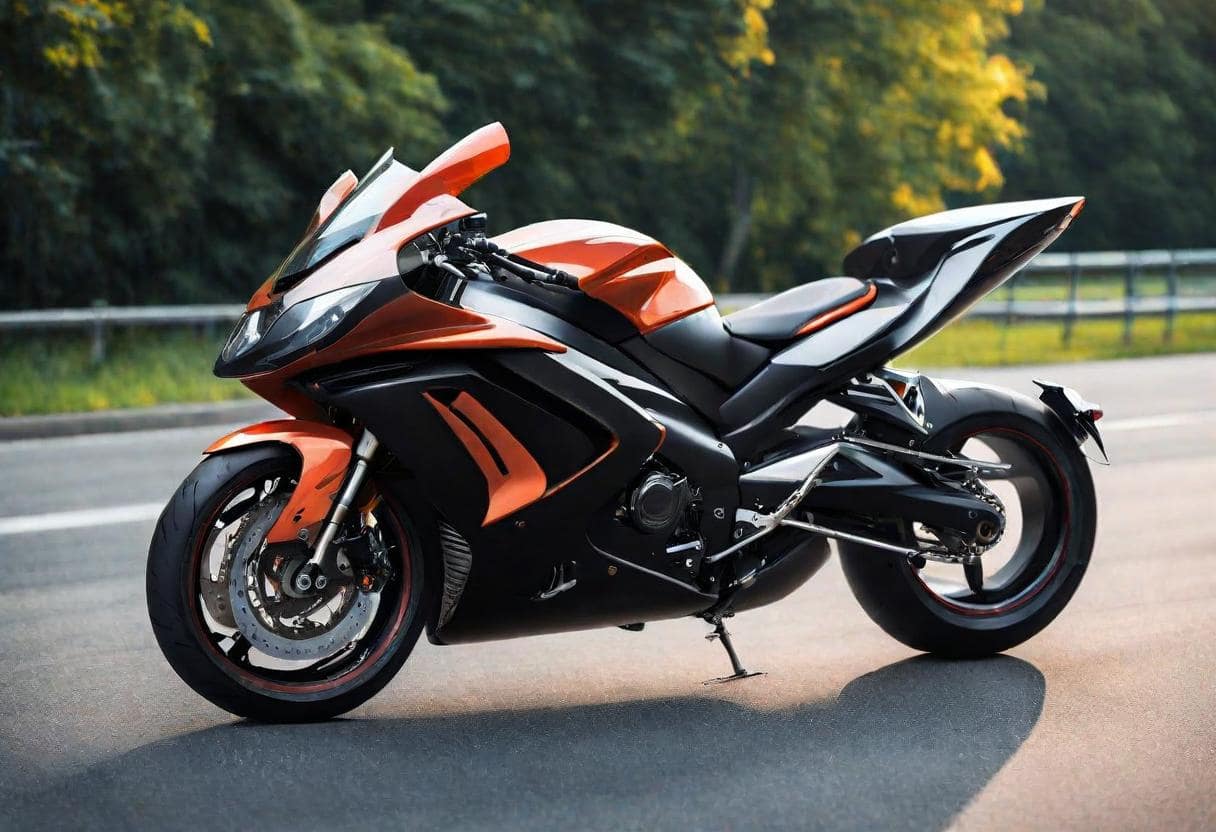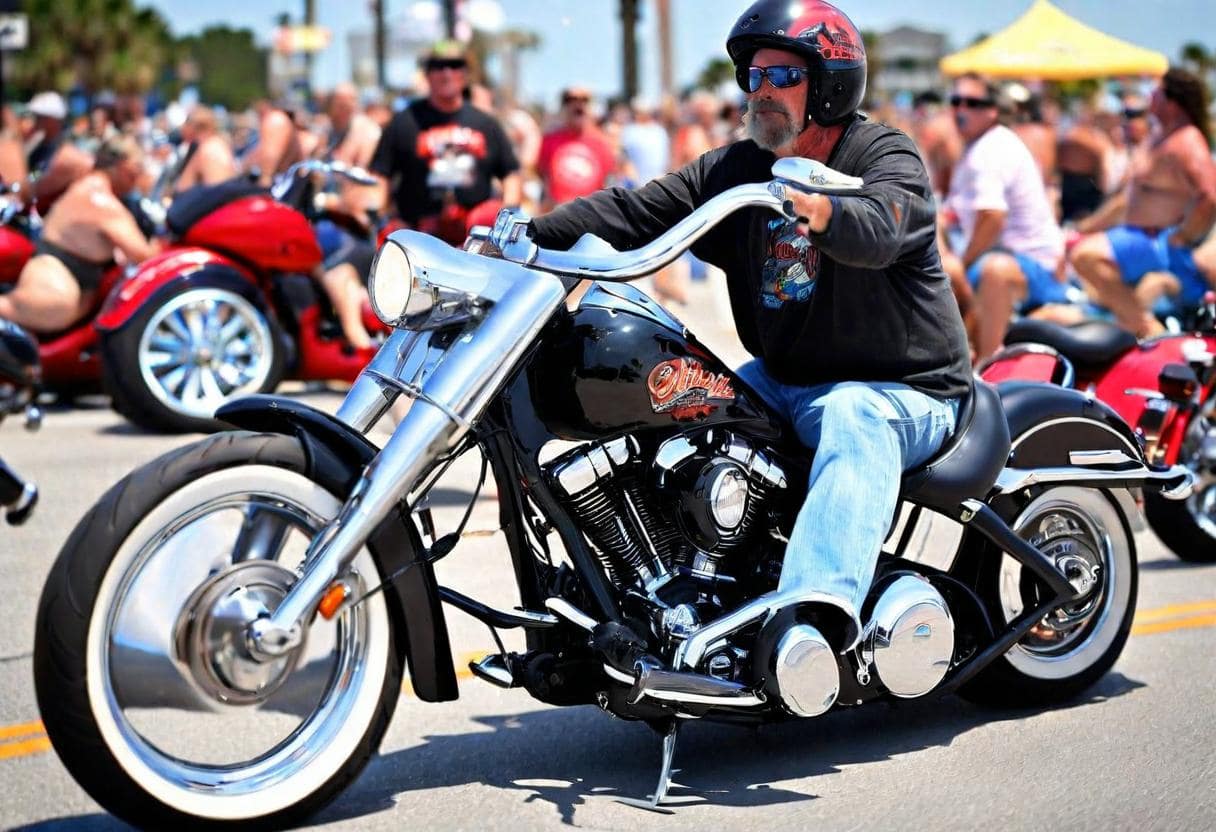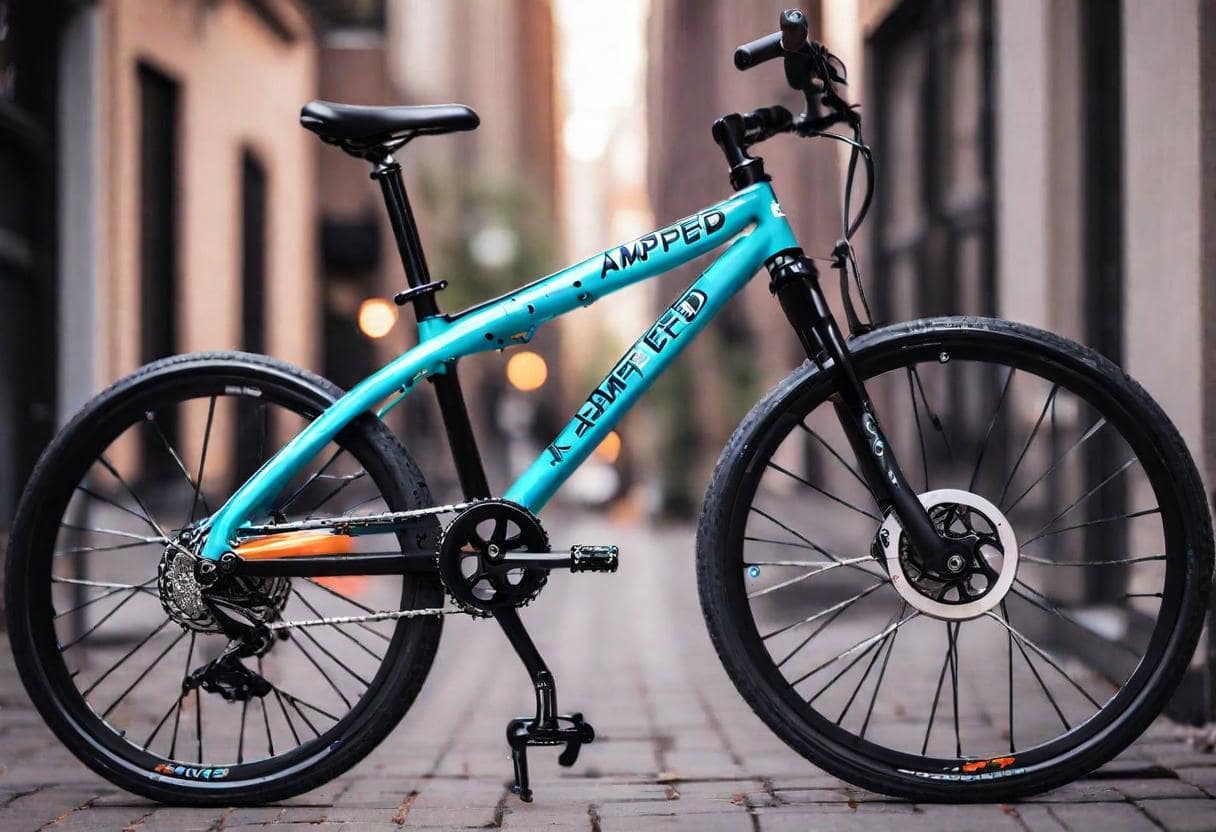If you’re an enthusiast looking to embark on the adventure of trike riding, you might find yourself pondering a crucial question: “do you need a motorcycle license for a trike?” The range of trikes, characterized by their unique combination of motorcycle thrills and high stability, presents riders with an interesting dilemma regarding legal requirements and licensing.” In this comprehensive guide, we’ll navigate through the nuances of trike licensing, shedding light on the legal landscape and providing insights into obtaining the necessary credentials to ride a trike safely and legally.
Understanding Trikes
What is a trike?
Trikes, short for tricycles, are motorized vehicles equipped with three wheels. Unlike traditional motorcycles, which feature two wheels, trikes offer enhanced stability and control, making them an appealing choice for riders seeking a safer alternative to conventional bikes.
Types of trikes
Trikes come in various forms, each with its own distinct features and riding dynamics. Delta trikes, tadpole trikes, and reverse trikes are among the most common types, catering to different preferences and riding styles. Understanding the differences between these types can help riders make informed decisions when choosing a trike.
Legal Requirements for Riding a Trike
Motorcycle license vs. driver’s license
In many jurisdictions, operating a trike falls under the same regulatory framework as riding a motorcycle. This means that individuals typically need a motorcycle license or an endorsement on their driver’s license to legally ride a trike on public roads. However, the specific requirements may vary depending on the state or country of residence.
Regulations on trikes
In addition to licensing requirements, trikes may be subject to specific regulations imposed by local authorities. These regulations often encompass factors such as vehicle classification, engine displacement, and safety features. Riders must be familiar with these regulations to ensure compliance and avoid legal confusion.
Do You Need a Motorcycle License for a Trike?
The answer to this question isn’t always straightforward and may vary depending on the jurisdiction in which you reside. While some states mandate a motorcycle license for trike operation, others may permit individuals to ride trikes with a standard driver’s license, provided certain conditions are met.
Differences in licensing requirements
One factor that influences trike licensing requirements is the classification of the vehicle. In some jurisdictions, trikes may be categorized as motorcycles, requiring riders to obtain a motorcycle license or endorsement. However, in other areas, trikes may be classified differently, allowing riders to operate them with a standard driver’s license.
State-specific regulations
It’s crucial for riders to research the licensing regulations specific to their state or country to ensure compliance with the law. This may involve consulting local authorities or referring to official government websites for up-to-date information on trike licensing requirements.

Benefits of Having a Motorcycle License for a Trike
Enhanced safety awareness
Obtaining a motorcycle license often involves completing a training course that covers essential safety practices and riding techniques. This comprehensive training can significantly enhance a rider’s awareness of road safety, reducing the risk of accidents and injuries while operating a trike.
Legal compliance
Having a motorcycle license ensures that riders are compliant with applicable laws and regulations governing trike operation. This not only helps to avoid potential fines or penalties associated with unauthorized vehicle operation but also instills a sense of responsibility and accountability among riders.
How to Obtain a Motorcycle License for a Trike
Steps to get a motorcycle license
The process of obtaining a motorcycle license typically involves several steps, including a written knowledge test, a practical riding skills test, and a vision screening. Some states may also require completion of a motorcycle safety course approved by the Department of Motor Vehicles (DMV) as part of the licensing process.
Training courses and certifications
Enrolling in a motorcycle safety course can provide riders with the necessary skills and knowledge to pass the licensing requirements with flying colors. These courses are often conducted by certified instructors who impart fundamental riding techniques and safety guidelines, equipping riders with the tools they need to ride a trike confidently and responsibly.
Do you need a motorcycle license for a Can Am Spyder in Texas?
Yes, in Texas, you typically need a motorcycle license or a Class M endorsement on your driver’s license to legally operate a Can-Am Spyder on public roads. The Can-Am Spyder is classified as a motorcycle due to its three-wheel configuration, which means that the same licensing requirements apply as they would for traditional two-wheeled motorcycles. Obtaining a motorcycle license involves passing a written knowledge test, a practical riding skills test, and a vision screening administered by the Texas Department of Public Safety (DPS). Additionally, completing a motorcycle safety course approved by the DPS is often recommended to enhance your riding skills and safety awareness. It’s crucial to adhere to these licensing requirements to ensure compliance with state regulations and avoid potential fines or penalties for unauthorized vehicle operation.

User Can a trike be a motorcycle?
Yes, a trike can be classified as a motorcycle depending on various factors such as its design, engine displacement, and regulatory definitions in different jurisdictions. Traditionally, motorcycles are defined as motor vehicles with two wheels, but some jurisdictions categorize trikes, or three-wheeled motorcycles, as motorcycles as well.
Trikes share many similarities with motorcycles in terms of operation and performance. They offer the thrill of riding on open roads while providing added stability and control due to the extra wheel. Additionally, trikes are often equipped with motorcycle-like controls, such as handlebars and foot-operated controls, further blurring the distinction between trikes and traditional motorcycles.
However, it’s essential to note that the classification of a trike as a motorcycle may vary depending on local regulations. Some jurisdictions may consider trikes to be a separate category of vehicles, while others may require riders to obtain a motorcycle license or endorsement to operate a trike legally.
Ultimately, whether a trike is considered a motorcycle depends on how it is defined and regulated in a particular jurisdiction. Regardless of classification, riders should always ensure they meet the necessary licensing requirements and adhere to safety guidelines when operating a trike on public roads.
How do you get a 3-wheel motorcycle license in Texas?
In Texas, obtaining a license to ride a 3-wheel motorcycle, such as a trike, involves following specific steps outlined by the Texas Department of Public Safety (DPS). Here’s a comprehensive guide on how to get a 3-wheel motorcycle license in Texas:
Meet the Eligibility Requirements: To apply for a 3-wheel motorcycle license in Texas, you must meet certain eligibility criteria. You must be at least 16 years old and hold a valid Texas driver’s license or obtain a learner license. Additionally, you must pass a vision screening test to ensure you meet the minimum visual acuity standards required for safe driving.
Complete a Motorcycle Safety Course: While not mandatory, enrolling in a Motorcycle Safety Course approved by the DPS is highly recommended. These courses provide comprehensive training on motorcycle operation, safety practices, and riding techniques. Completion of a motorcycle safety course may exempt you from the skills test required for licensing and can also lead to insurance discounts.
Pass the Written Knowledge Test: Before obtaining a 3-wheel motorcycle license, you must pass a written knowledge test administered by the DPS. The test covers essential topics such as traffic laws, road signs, and safe riding practices. Study materials and practice tests are available online to help you prepare for the exam.
Pass the Skills Test: After passing the written knowledge test, you must demonstrate your riding skills by passing a practical skills test. This test evaluates your ability to control a 3-wheel motorcycle safely in various traffic situations. The skills test typically includes exercises such as braking, cornering, and maneuvering through obstacles.
Schedule and Take the Tests: Once you feel prepared, schedule appointments to take both the written knowledge test and the skills test at a local Driver License Office or an approved testing site. Be sure to bring all required documents, including identification, proof of completion of a motorcycle safety course (if applicable), and any other relevant paperwork.
Pay the Licensing Fees: There are fees associated with obtaining a 3-wheel motorcycle license in Texas. Be prepared to pay the required licensing fees at the time of application. Accepted payment methods may include cash, check, or credit/debit card, depending on the location.
Receive Your License: Upon successfully passing both the written knowledge test and the skills test, you will be issued a 3-wheel motorcycle license or a Class M endorsement on your existing driver’s license. Your license will indicate your eligibility to operate a 3-wheel motorcycle legally in Texas.
By following these steps and meeting all necessary requirements, you can obtain a 3-wheel motorcycle license in Texas and enjoy the freedom of riding a trike safely and responsibly on the open road.
FAQs About Trike Licensing
What are the advantages of riding a trike?
Trikes offer increased stability and control compared to traditional motorcycles, making them an excellent choice for riders seeking a safer and more comfortable riding experience.
Can you ride a trike with just a driver’s license?
While some states may permit trike operation with a standard driver’s license, others may require a motorcycle license or endorsement, depending on the vehicle’s classification and local regulations.
Are there age restrictions for riding a trike?
Age requirements for trike operation vary by jurisdiction, with most states requiring individuals to be at least 16 years old to obtain a motorcycle license or endorsement.
Do you need insurance for a trike?
Yes, most states require trike owners to carry liability insurance coverage to protect against potential accidents or property damage. It’s essential to consult local insurance providers to obtain the necessary coverage for your trike.
Are there any specific gear requirements for riding a trike?
While gear requirements may vary by state, it’s recommended for riders to wear protective gear such as helmets, gloves, and sturdy footwear when operating a trike for added safety and protection.
Conclusion
In conclusion, the question of whether you need a motorcycle license for a trike hinges on various factors, including the classification of the vehicle and local regulations. However, obtaining a motorcycle license offers numerous benefits, including enhanced safety awareness and legal compliance. By understanding the licensing requirements and adhering to safety guidelines, riders can enjoy the thrill of riding a trike responsibly and confidently.
FAQs
What kind of license do you need for a trike in California?
Do I need a motorcycle license for a trike in Texas?
Yes, in Texas, you typically need a motorcycle license or a Class M endorsement on your driver’s license to legally operate a trike on public roads. Trikes, also known as three-wheeled motorcycles, are subject to the same licensing requirements as traditional two-wheeled motorcycles. This means that you must pass both a written knowledge test and a practical skills test to obtain a motorcycle license or endorsement, unless exempted by completing an approved motorcycle safety course.
Do you need a license to drive a trike in Texas?
Yes, a license is required to drive a trike in Texas. As mentioned earlier, you typically need a motorcycle license or a Class M endorsement on your driver’s license to legally operate a trike on public roads. This applies to all motor vehicles classified as motorcycles, including trikes, regardless of the number of wheels. It’s essential to comply with Texas licensing regulations and ensure you possess the appropriate credentials before riding a trike on Texas roads.







